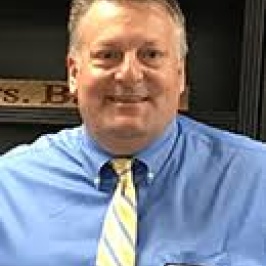Critical Information
K-12 teachers report the highest burnout rate of all U.S. professions, with more than four out of every 10 teachers noting that they feel burned out "always" or "very often" at work, according to a June 2022 Gallup poll.
Two modes for promoting resilience
Synchronous solutions…
The overarching goal of this program is retention. Through stress inoculation, faculty will use our unique Resilience Rubric, to prepare for the challenges of being an educator, causing burnout. Each member will construct a unique Prosilience Plan that helps identify and remediate risk factors, generated in both their personal and professional lives. There are two options:
Option #1 (Trailblazers): Each school identifies faculty with the greatest potential for success. These faculty members are led through a six month program to develop skills to help them become more successful. These faculty members will resonate success, inspiring others to greatness. In the second year, Resilience Advocates (RA's) will learn how to bring this work into their classrooms to promote student success.
Option #2 (New Hires): Faculty in their first two years of employment with the district. Our meetings will occur on the last Tuesday of each month (holiday exceptions), from 2:30-3:15, lasting approximately 45 minutes. During this time, an expert facilitator will guide the group through a combination of content and process, helping form an invaluable support net
Asynchronous solutions…
include on-demand video engagements on a range of topics from behavioral health to physical wellness. Faculty (and parents) can learn the rubric for developing greater resilience, to reduce stress and increase longevity. Enjoy a video montage on preventing burnout from our on-demand video engagements.
On-demand virtual engagements

Differentiated Instruction Part I
Differentiated Instruction (DI) is a commonly used phrase in education with various meanings. Learn from this superintendent a common language for meeting student goals.

Differentiated Instruction Part III
The final engagement in this series addresses advanced students and the SAMR system of learning. Academic engagement in diverse classrooms considered.

Drug Prevention & Intervention Part II
Understanding the nature of the disease is essential for good recovery planning. A qualified assessor who considers all the social, emotional, and behavioral issues both seen, and unseen is needed.

Educator Well-Being Intro
Educators are experiencing enormous stress and anxiety at their job. Learn more about how this series can help your body and brain be able to regulate, destress, and build resilience.

Educator Well-being Part I
Stress and anxiety impact educators' mental health. Explore some practices that can help you relieve stress through accessing the Poly-vagal nervous system.

Educator Well-Being Part II
We want to help educators build long, healthy careers. Let's explore breathing strategies to build regulation and resiliency. These are strategies that can be taught to your students as well.

Educator Well-Being Part III
Meaningful job satisfaction for educators begins with the three pillars of self-care and keeps you connected to your love of the job and your students.

Educator Well-Being Part IV
Let's explore some new practices for your Well-Being. Educators feel pressure from everyone. We can unload some of this pressure by building your radical acceptance and self-compassion skills.
Success Stories

"Whole School Health Through Psychosocial Emotional Learning highlights the importance of relationships, communication, and compassion for others. It presents a critical view in supporting, training, and retaining teachers through the lens of engaging and modeling behaviors that will help our rural students be better civic leaders and community members. My favorite quote from the book gives credit to the author's upbringing and modeling from his parents: 'We must experience the world through others so we can fully engage in educating all children. My father and mother modeled to me and my siblings how to experience the world through somebody else’s eyes, especially if their outer differences stirred up discomfort or displeasure, enriching all lives involved.' I recommend all leaders, teachers, and stakeholders secure their copy as they prepare for school."
Allen Pratt, Executive Director, National Rural Education Association (NREA)